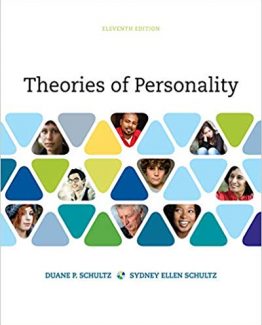Handbook of Reading Research, Volume V 1st Edition by Elizabeth Birr Moje, ISBN-13: 978-1138937376
[PDF eBook eTextbook] – Available Instantly
- Publisher: Routledge; 1st edition (June 24, 2020)
- Language: English
- 522 pages
- ISBN-10: 1138937371
- ISBN-13: 978-1138937376
In a time of pressures, challenges, and threats to public education, teacher preparation, and funding for educational research, the fifth volume of the Handbook of Reading Research takes a hard look at why we undertake reading research, how school structures, contexts and policies shape students’ learning, and, most importantly, how we can realize greater impact from the research conducted. A comprehensive volume, with a “gaps and game changers” frame, this handbook not only synthesizes current reading research literature, but also informs promising directions for research, pushing readers to address problems and challenges in research design or method.
Bringing the field authoritatively and comprehensively up-to-date since the publication of the Handbook of Reading Research, Volume IV, this volume presents multiple perspectives that will facilitate new research development, tackling topics including:
- Diverse student populations and sociocultural perspectives on reading development
- Digital innovation, literacies, and platforms
- Conceptions of teachers, reading, readers, and texts, and the role of affect, cognition, and social-emotional learning in the reading process
- New methods for researching reading instruction, with attention to equity, inclusion, and education policies
- Language development and reading comprehension
- Instructional practices to promote reading development and comprehension for diverse groups of readers
Each volume of this handbook has come to define the field for the period of time it covers, and this volume is no exception, providing a definitive compilation of current reading research. This is a must-have resource for all students, teachers, reading specialists, and researchers focused on and interested in reading and literacy research, and improving both instruction and programs to cultivate strong readers and teachers.
Table of Contents:
Cover
Half Title
Title Page
Copyright Page
Table of Contents
Preface
PART I: Game Changers in Reading Research: Setting the Stage
1. Game Changers in Reading Research
PART II: How Increasingly Diversified Populations Change the Game for Readers, Teachers, Leaders, and Reading Researchers
2. Demographic Realities and Methodological Flexibility in Literacy Teaching and Research
3. Social and Cultural Diversity as Lens for Understanding Student Learning and the Development of Reading Comprehension
4. A Sociocultural Perspective on Readers, Reading, Reading Instruction and Assessment, Reading Policy, and Reading Research
PART III: How Do Expanding Forms of Texts and Everyday Communication Change the Game for Readers, Teachers, Leaders, and Reading Researchers?
5. Reading Multiple and Non-Traditional Texts: New Opportunities and New Challenges
6. Who Reads What, in Which Formats, and Why?
7. Digital Reading: A Research Assessment
8. Multimodal Critical Inquiry: Nurturing Decolonial Imaginaries
PART IV: How Do Expanding Conceptualizations of Readers Change the Game for Teachers, Leaders, and Reading Researchers?
9. The Language for School Literacy: Widening the Lens on Language and Reading Relations
10. Readers’ Individual Differences in Affect and Cognition
11. Continuities between Early Language Development and Reading Comprehension
12. What Do We Know Today about the Complexity Of Vocabulary Gaps and What Do We Not Know?
13. The Role of Knowledge in Understanding and Learning from Text
14. Defining Deep Reading Comprehension for Diverse Readers
PART V: How Do Expanding Conceptions of Teacher, Reader, and Text Interaction Change the Game for Reading Researchers, Teachers, Leaders, and Policy Makers?
15. The Joint Development of Literacy and Self-Regulation in Early Childhood: Implications for Research and Practice
16. Literacy Instruction and Individual Differences in Students’ Cognitive Development
17. Social and Cultural Differences in Reading Development: Instructional Processes, Learning Gains, and Challenges
18. Learning Academic Language, Comprehending Text
19. High Quality Language Environments Promote Reading Development in Young Children and Older Learners
20. Expanding Teaching and Learning with Disciplinary Texts: The Case of Reading and Science
21. Literacy Instruction and Digital Innovation: Trends and Affordances for Digital Equity in Classrooms
22. Restorying Critical Literacies
23. More Connected and More Divided than Ever: Toward a Cosmopolitan Ethics of Digital Literacies
PART VI: How Do Research Methods Change the Game for Reading Researchers and Policy Makers
24. The Use of Video Data in Reading Research
25. Examining the Process of Reading in Media Text Environments: A Methodological Perspective
26. How Can Neuroscience Bridge Gaps in Reading Research?
27. Qualitative Case Study Methodology Driven by Sociocultural Perspectives
PART VII: Minding the Gaps: Translating Reading Research as the Game is Changing
28. Concluding Thoughts from the Editors
Contributor Biographies
Index
Elizabeth Birr Moje is Dean of the School of Education, George Herbert Mead Collegiate Professor of Education, an Arthur F. Thurnau Professor, and a Faculty Associate in the Institute for Social Research and Latina/o Studies at the University of Michigan, USA.
Peter P. Afflerbach is Professor of Reading in the Department of Teaching and Learning, Policy and Leadership at the University of Maryland, USA.
Patricia Enciso is Professor of Literacy, Literature, and Equity Studies in the Department of Teaching and Learning at the College of Education and Human Ecology, and Faculty Associate in Latinx Studies, at The Ohio State University, USA.
Nonie K. Lesaux is Juliana W. and William Foss Thompson Professor of Education and Society at the Harvard Graduate School of Education, USA.
What makes us different?
• Instant Download
• Always Competitive Pricing
• 100% Privacy
• FREE Sample Available
• 24-7 LIVE Customer Support






Reviews
There are no reviews yet.